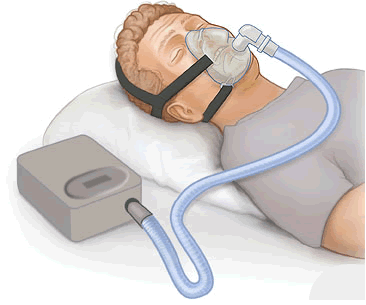Obstructive Sleep Apnea-Related Brain Damage, Cognitive Deficits May Be Reversible Via CPAP

Obstructive sleep apnea occurs when the upper airway is blocked when sleeping. This blockage can lead to a reduction in the amount of oxygen that reaches the brain. Sleep apnea can cause brain damage, leading to significant cognitive deficits, such as day-time attention and concentration, information processing, and emotional functioning. Luckily, according to several research studies, this damage may not be permanent.
Recent neuroimaging studies have shown reduced tissue volume—both gray matter and white matter—in the brains of individuals with untreated obstructive sleep apnea. These results strongly suggest a mechanism for the cognitive impairment associated with this disorder. However, researchers have also shown that there is potential to reverse obstructive sleep apnea-related brain tissue damage as well as the associated cognitive impairments by treating with continuous positive airway pressure (CPAP). By increasing air pressure in the throat of an individual with obstructive sleep apnea, CPAP prevents airway blockage from occurring during sleep. This further prevents the reduced oxygen flow to the brain that is implicated in obstructive sleep apnea.
In a pair of studies on the effectiveness of CPAP, Vincenza Castronovo’s research team found that treating obstructive sleep apnea with CPAP led to significant improvements in gray and white matter volume in participants with untreated obstructive sleep apnea. Notably, the brain tissue improvements were accompanied by recovery of cognitive abilities, suggesting that CPAP may be an effective treatment for reversing the negative impact that obstructive sleep apnea has on the brain.
MRJ clerk Andrew Lehmkuhl contributed to this post. Image by PruebasBMA, CC BY-SA 3.0.